Why Do People Give Romance Such a Hard Time?
For decades, the romance genre has been the butt of innumerable jokes – but it continues to be the biggest genre in publishing, and generates over $1 billion in sales every year. Is it time we looked at this much-maligned genre with a more discerning eye?
If you’re remotely interested in reading romance books, you might have heard about #Cockygate – the latest big scandal to hit publishing earlier this year. The details have been covered enough that we don’t need to rehash it all again, but a lot of the resulting discussion in the media focused on the broader subject of the romance genre in general, and even romance readers themselves. It’s that focus that is worthy of further discussion.
Because what was written and said about the genre and romance readers in particular wasn’t very flattering.
By and large, most authors who write romance novels, and most readers who devour them, don’t really care about what the New York Daily News or other publications have to say about them. There have been countless articles dedicated to how bad the writing of Fifty Shades of Grey is, for example, and I imagine that this is how E.L. James reacts:

But is the criticism aimed at the romance genre fair? Or even reasonable?
The more you look at it, the more it seems like a lot of the criticism of the romance genre is rooted in snobbery and jealousy, with many of the arguments being completely hypocritical or unjustified. The truth is, the genre sometimes offers us the best in what modern writing has to offer.
Facing the Criticism
The romance genre is a singular force within publishing. It drives the industry forward. It’s the most-read genre, the biggest revenue-generator, and it was arguably the biggest factor behind the success of Amazon’s Kindle Direct Publishing program and the Amazon Kindle product. Just like many people argue that pornography drove the acceleration of the Internet, there’s an argument to be made that the relentless appetites of romance readers is what helped establish self-publishing on digital devices as a ‘thing.’ As my sister-in-law told me – it’s a lot less squirm-inducing to read steamy romance novels on the train when you’re using a Kindle than when you’ve got a big, paperback book with a half-naked man on the cover (although if the book is any good, it should still induce some squirming.)
Nielsen BookScan and PubTrack Digital claimed that the romance genre makes up 34% of all book sales, and that would be impressive all by itself even if it weren’t a fact that those numbers are severely under-reported. The issue is that BookScan and PubTrack follow just a small segment of traditional publishing, and completely miss out on most of Amazon’s self-published and digital books – and romance dominates those sales. So it’s safe to say the true numbers are far higher than generally reported.
Which leads to the question: If it’s so huge, and so important to the industry, why is the romance genre given such a hard time?
To really answer that, we need to look at the two main factors that are most often attacked – the genre itself, and the readers.
Romance Readers
Romance sells a prodigious number of books – so who are the people buying them? Well, the link posted above suggests that 82% of the romance audience are female, and they read a huge number of books. We know from our ARC program that many read an entire romance novel every single day – which is why programs like Amazon’s Kindle Unlimited (essentially Netflix for books, if all of the content on Netflix were exclusive to Netflix) make such a lot of sense for them.
To many people, the idea of devouring a book a day suggests that romance readers aren’t discerning. Just look at the recent court filings attached to #Cockygate, where it was argued that romance readers in general were ‘unsophisticated’ to the point that they’d choose and buy a book based on the bare-chested man on the cover and a single word from the title, rather than even reading the author’s name. Fortunately, the judge in that case dismissed the suggestion as absurd. And as anyone who’s ever tried to write and sell a romance novel knows, romance readers can be extremely discerning.
I think the scorn directed towards romance readers stems largely from snobbery. When I interact with the friends I went to university with (where I studied English Literature as one of my two majors) a lot of them frequently post about how much they hate Kindles, their fondness for libraries, and how they’re re-reading the same book for the third or fifth time (seriously, I have an ex-girlfriend who should have memorized every line from Pride and Prejudice the number of times she posts on Facebook about re-reading it.)
It strikes me that their view of what ‘proper’ reading consists of is extremely narrow. It’s got to come from approved sources (traditional publishing, for example) and mainstream vendors (brick and mortar stores) where familiar titles and authors are embraced more for that familiarity than anything else.
In contrast, most romance readers are deep into the wild west of publishing. With an Amazon Kindle and a Kindle Unlimited account, they have access to a vast range of books and authors that my mainstream friends will never be exposed to. There are tens of thousands of books that are only available digitally, and my “more sophisticated” (heavy sarcasm) friends never get exposed to any of them. Romance readers are also more willing to give new authors and new book series a try, since they’re such prodigious readers. They’re pioneers, experimenters, discoverers and explorers. Their open-mindedness and enthusiasm to embrace the new and original makes the idea that they’re ‘unsophisticated’ seem even more preposterous. In fact, it’s the complete opposite.
Just like the hunger for romance books drove the success of self-publishing and digital eReaders, it’s romance readers who’ve helped drive the discovery and success of a whole generation of new authors. Romance readers post reviews that showcase previously unheard of authors, and in buying their books they support those writers to publish more. Self-published authors of all genres have more to thank romance readers for than almost anybody else, and for this reason many also find the notion that they’re ‘unsophisticated’ to be wildly insulting, inaccurate and boorish.
The Romance Genre
Okay, so now that we’ve addressed how romance readers are actually a lot braver, more sophisticated and discerning than many give them credit for, let’s look at the genre itself.
By far the biggest criticism of romance books in general are that they’re formulaic – that all the stories follow the same blueprint, with the same beats, right down to the usual ‘HEA’ (happily ever after) at the end of them. And I think it’s fair to admit that successful romance books do follow a formula. It’s why they’re successful. Romance readers might be willing to experiment with new authors and new book series, but at the end of the day they want to know what they’re getting when they do choose to read a new book; and it’s not only ridiculous, but hypocritical to criticize them for that.
Any genre fiction book is formulaic, and the successful ones even more so.
You don’t see anyone criticizing a murder mystery for having a dead body in it, or a science fiction novel for having space-ships and robots, do you? The most successful books in any genre are just as formulaic as romance – with covers for horrors and science fiction books often appearing just as generic as the bare-chested men on the cover of many bestselling romance novels.
Once again, I think that criticism stems from snobbery; and nowhere else.
And if you look at the most successful writers outside of the romance industry, they’re as guilty of being formulaic as anybody. James Patterson publishes 15 novels a year, and he does that by hiring an army of ghostwriters who are familiar with the ‘beats’ of his books. After they’ve constructed the framework, he’ll go in to give it a little Patterson polish before sending it to the publisher.
Lee Child, the talent behind Jack Reacher, churns out a number of books every year that also follow a strict formula. Readers want them to.
I’m a big fan of Michael Connelly, author of The Lincoln Lawyer, and the other day I spotted somebody reading that book at the pool and we had a discussion about how sometimes you needed to take a break from Connelly to ‘reset your palette’ – just like occasionally you have to switch from Budweiser to Miller Lite.
Hell – I’m a crazy fan of Robert Harris, author of Fatherland, and yet I’ll be the first to admit that he takes the same plot and just reuses it in a different historical setting with each book.
So using the argument that romance is bad because it’s too formulaic ignores the fact that almost every successful author in any genre is guilty of the exact same thing.
What’s so wrong with formula anyway?
While we’re on the subject of formulaic books – what’s so wrong with them, anyway?
I think we’ve already established that most genre books fall into formula, and many commercially successful authors adopt a ‘formula’ after a while. It’s not unreasonable. You find out what works for you and you repeat it. As you progress you can add a new spin, but an audience expects certain things from a writer; and after a while a writer becomes duty-bound to deliver on those expectations.
Formula, in fact, is the secret sauce which separates genre fiction from literary fiction.
I’ve had a number of writer friends who went the traditional route into publishing, and they’ve all repeated the same story – that at the very beginning, their agent prompted them to choose between becoming a literary fiction author, or a genre author. There was almost no transition between the two; and only superstar success allowed you to make that shift. The only two examples I can think of are JK Rowling, with her crime books like Casual Vacancy (which, let’s be honest, would be classified as ‘genre’ if they’d been written by anybody other than Rowling) and Stephen King, who endured decades of being called “America’s schlockmeister” before finally being given a National Medal of Arts by President Obama in 2015.
Literary fiction is viewed as ‘art’ and doesn’t have any of the expectations of genre – so authors can write what they want. Some truly remarkable books have been written in the literary fiction field, and it’s the most visible and reported-on slice of publishing. From the world-famous Booker award to dozens of other literary awards, it’s literary fiction where the prestige is to be found… Which is a good thing, because it sure as hell isn’t where the money lives.
The amount of column inches and the number of awards dedicated to literary fiction are almost directly commensurate to the lack of money to be made from writing it. If you ever see newspaper articles about how tough authors have it, it’s almost always writers of literary fiction they’re talking about. In fact, that article inadvertently points out the issue when the journalist accidentally confesses: “…the poor dears should knuckle down and resign themselves to writing what people actually want to read.”
The problem with literary fiction is that is doesn’t have a formula. There will always be a few dedicated readers of it, but I would argue more because they think it demonstrates something about themselves (and perhaps their intellectual pretensions) than because they actually enjoy it. I read literary fiction every once in a while, but it’s the reading equivalent of eating broccoli. There’s the perception that it’s good for you, but it’s not what you enjoy. That’s why I intersperse it with all the thrillers and romance books I actually like to read.
Genre fiction, on the other hand, isn’t art. It’s craft.
What’s the difference? Well, art exists in and of itself, for itself, whereas craft has a purpose. A painting is art. A table is craft. You don’t expect anything from a painting except to look interesting (or perhaps cover up that crack on the wall) whereas a table has to meet the functional criteria of being able to eat your breakfast off it. Craft can certainly have artistic flair – just go to your next craft fair and see the elegantly crafted and carved wooden tables, or some of the functional metal pieces for sale at high-end stores in New York – but no matter how artistic a table gets, or how much it costs, you can still eat your breakfast off it.
A table has to have a flat surface, and be elevated appropriately, and have supporting legs. That’s the ‘formula’ of a table – and it’s no different to the ‘formula’ of a good romance book, or thriller. Being formulaic shouldn’t be viewed as a negative – it’s structural, important, and defines the object for what it is.
And I’d go one step further. Take poetry.
While the most ‘respected’ writing is literary fiction – which exists without the expectations of a genre formula – the most respected poetry tends to be the opposite. Whether you’re looking at a haiku (which is always three lines, with five syllables in the first and last line, and seven in the middle) or a sonnet (fourteen lines, rhyming, with ten syllables per line) or just a poem-that-rhymes-at-the-end, good poetry is always expected to fit into a structure.
The ‘art’ of poetry is that you express yourself within a structure – ironically the complete opposite of literary fiction. Structured poetry is respected because you have to take your thoughts and use your rich vocabulary to squeeze it into that formula. That takes talent.
So I’d argue this – doesn’t genre fiction present the same opportunity? To take a vivid, rich and colorful idea and then use your talents as a writer to squeeze it into the formula of that genre? Doesn’t that take more talent as a writer than to just scribble it all down in the free form of literary fiction?
Maybe, maybe not. Done correctly, there are great (and terrible) examples of each. But the point is, I honestly believe it takes true talent to write a creative, vivid and compelling genre book – and in some ways you could consider a well-written romance novel to be the ultimate expression of long-form poetry.
Romance Novels are ‘Problematic’
There’s one more criticism thrown towards the romance genre, and it’s potentially the most serious one.
People argue that romance books are often ‘problematic.’
What does problematic mean? Well, it’s a term that’s found increasing popularity these days as people look at popular culture and then take issue with it. For example, people have been looking at old episodes of F.R.I.E.N.D.S. and are complaining that it’s homophobic, transphobic, racist and sexist. I’m not sure how I feel about that, but there are certainly issues that can be raised with romance books.
In fact, some people complain that the biggest issue causing problems in relationships is that women are raised on a diet of Disney films and romance novels, and men are raised on a diet of pornography, and it causes massive disparity in interpersonal expectations.
In the old days, the biggest issue was the notion of the ‘bodice ripper.’
This was the sort of romance novel in which the dashing hero (a Duke, or a pirate, or Prince) would stumble across our innocent heroine and brutally rape her. And she’d like it. And they’d fall in love and live happily ever after. This trope used to be ubiquitous in the romance genre… and there is actually a logical reason why.
In the seminal 1973 book My Secret Garden by Nancy Friday, the respected journalist quizzed hundreds of women on their favorite sexual fantasies and rape was second only to incest in popularity. She explained that the idea of rape as a sexual fantasy was popular because it allowed women to keep their virtue (“I didn’t want to have sex”) while at the same time indulging in passionate carnality. It was a fantasy as far removed from real rape as it’s possible to get, and the romance books that thrived on the trope were similarly rooted in pleasurable fantasy.
In 1991 Nancy Friday wrote a follow-up, Women on Top, which revealed that as the sexual revolution progressed, women thought less about rape as a sexual fantasy (although it’s remained one of the most popular). She argued that as women learned to embrace their sexuality, and feel less shame in exploring it, the need to be able to ‘excuse’ their sex (the “but I didn’t want it” line) became less important to them. Perhaps consequently, the rape-but-she-liked-it trope also became less and less popular within romance novels. After the rise of the Internet and third-wave feminism, preceding things like the #METOO movement, publishers shied away from that trope completely, and non-consensual sex is now one of the types of writing that Amazon themselves will refuse to allow to be published.
But while that trope has died its death, the romance genre still has many troubling aspects to it. The Twilight Series and 50 Shades of Grey both feature behavior from their heroes that could be viewed as abusive. As one joker put it – “the fact that Christian Grey is a billionaire is the only reason 50 Shades of Grey isn’t an episode of Law & Order: SVU.”
In more mainstream romance fiction, the trope of the ‘alphahole’ is a powerful one – the male character who is arrogant, dislikable and borderline abusive… Until the female character melts his icy heart and discovers the good guy beneath. On the RomanceMFA website, Bonnie Loshbaugh argues that drawing the line between “alpha” and “asshole” is subjective – but whichever way you look at it, it’s a pretty thin line.
There have been many articles decrying the ‘alphahole’ trope and the romance genre in general… but the evidence suggests that the actual buyers aren’t listening. Despite problematic tropes being so ubiquitous, the genre continues to earn more than a billion dollars a year.
And just as Nancy Friday had an explanation rooted in psychology for the popularity of the rape fantasy, I think a similar reason exists for the popularity of the ‘alphahole’ and the borderline abusive behavior of heroes like Twilight‘s Edward and 50 Shades‘ Christian: Those are types of behavior that women inherently find attractive.
I get worried about making statements like “it’s evolutionary” because I think an awful lot of terrible behavior is excused with pseudo-scientific explanations – but I think you could argue that women are attracted to powerful, protective, dynamic men; and the worst behavior of romance heroes often demonstrates what they view as those attractive traits. Once again, the people-who-don’t-actually-buy-romance-books might argue that we should decry ‘toxic masculinity’ and showcase heroes who are nurturing, vulnerable and caring… But the honest truth is that these are not the sort of characters who get a lot of romance readers purring; and you can’t force yourself to be attracted to something or someone no matter how much you ‘should’ be.
But the slow elimination of the ‘rape-until-she-likes-it’ trope demonstrates that romance fiction is evolving just as society does – and it reflects changing and developing attitudes. It’s very likely that in ten or fifteen years, we’ll look back at contemporary romance fiction and the trope of the ‘alphahole’ will be as anachronistic and cringe-worthy as the “bodice ripper” has become today.
I think before we lambaste the romance genre as ‘problematic’ we need to remember that it exists as a reflection of our cultural tastes; not a force that drives them (nor should it be used to excuse them). And in that respect, from a literary perspective, the romance genre itself is and will continue to be a valuable mirror to hold up and examine ourselves through.
Conclusion
Just as the line between a romance hero ‘alphahole’ and just a plain, old ‘asshole’ is subjective, I think your view of the romance genre will be too. However, I think much of the criticism aimed at both romance authors and romance readers is unjustified.
The romance genre is one of the post powerful forces in publishing today, and everything that the popularity of romance books has driven forward ends up benefiting the rest of the publishing industry. It generates over a billion dollars in revenue every year, and with the rise of self-publishing more and more of that revenue is being filtered into the hands of self-published authors, most of whom are women. It’s one of the few industries in which women dominate – both as consumers and creators – and even in this post-feminist age, I don’t think we should view that as a bad thing.
Romance writing might be formulaic – but so what? To criticize books for being formulaic smacks of hypocrisy and snobbery. In that respect, I think a lot of the criticism aimed at romance novels says more about those making the criticism than the authors or readers they’re criticizing.
And finally – the romance genre might have problematic aspects to it – but those are reflections of our culture, not the cause of the problem. I think anybody who criticizes romance heroes as ‘abusive’ or the love scenes as ‘sexist’ needs to examine those aspects in the context of our modern society; and not in the isolation of a digital manuscript.
I think there is great beauty, enormous talent and a lot of cultural significance to be found within the romance genre; and I think we’re all doing romance authors and romance readers a huge disservice by not giving them or their craft the recognition they deserve.





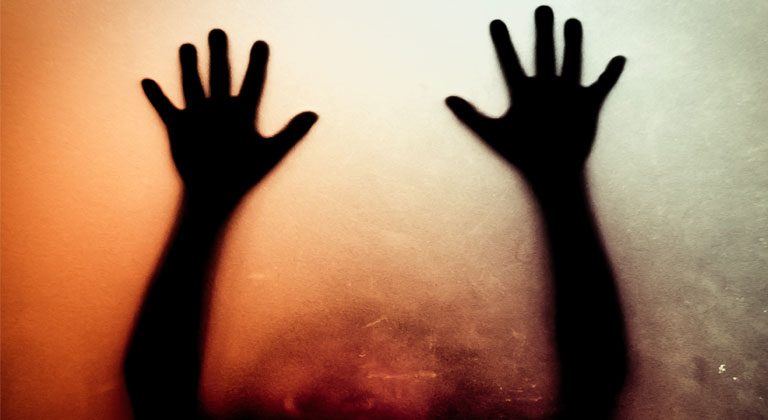

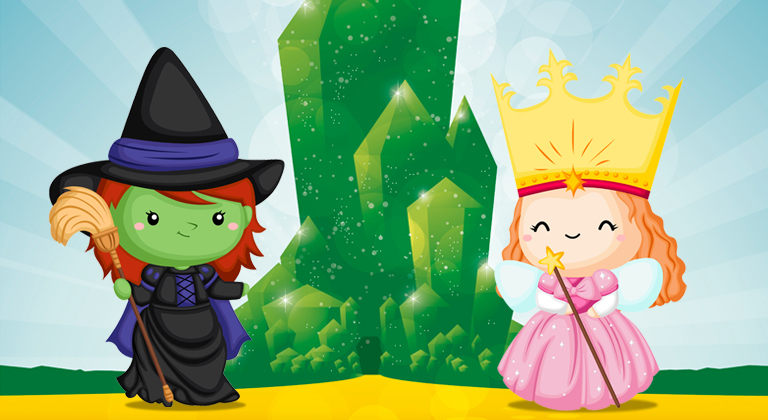
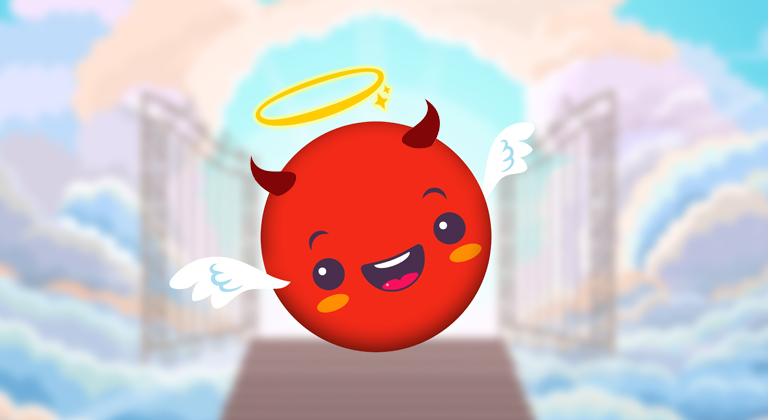
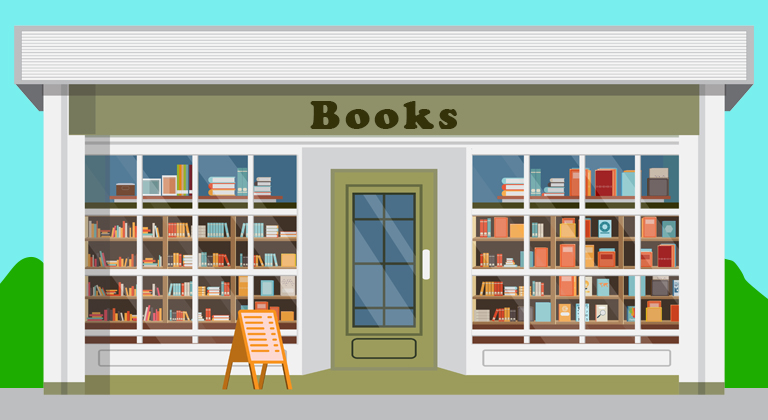

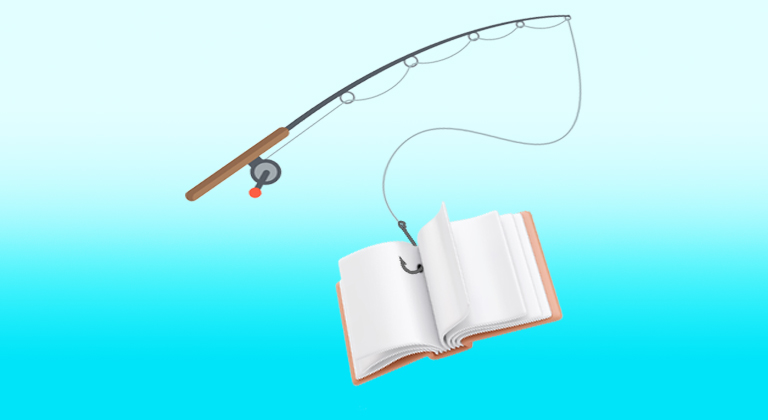
2 Comments